
views
Improving Yourself
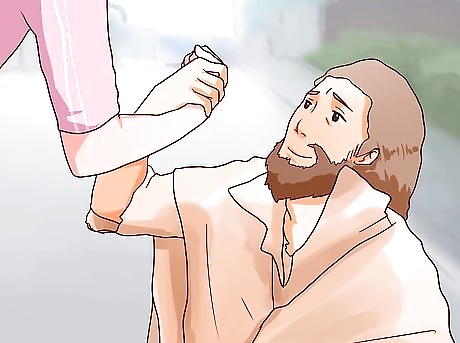
Determine what being a good person means to you personally. Some people think that being a good person is as simple as not doing harm to another. But it is not always about what you don't do, but what you do for others. Being a good person also includes helping yourself as much as others. You have to decide what you believe being a good person entails. What is your ideal person? Make a list of traits that you believe make up a good, ideal person. Start living your life according to these traits. Are you waiting for something in return? Are you doing things because it will help you look good? Or are you doing things because you truly want to give and help? Stop putting up airs and adopt the attitude of giving without expectation of receiving anything in return. Being good does not mean only by outer goodness. You have to consider being good straight from the heart (i.e., purely). Ultimately, you have to decide on your own code of ethics, and what matters is that you follow through with what you believe makes you a good person. At times, this may conflict with what others believe is good, and they might even accuse you of being wrong or evil. Consider their views - either they know something you don't, in which case you may learn something from them and update your morality, or perhaps their experience is limited, meaning that you should take their views with a grain of salt.

Choose a role model. Having a role model provides you with an example of someone to correspond to. This person should have traits that you want to attain. Think of ways that you can better embody the qualities you admire. Think of how to apply those qualities in your work, creative pursuits, personal relationships, diet, and lifestyle. Who do you look up to and why? How are they making the world a better place to live in, and how can you do the same? What qualities do you admire in them, and how can you develop the same ones? Keep your role model close to you, like a friendly spirit that is always at your side. Think of how they would respond to a question or circumstance, and how you should respond in the same manner. Ask your loved ones and people your trust for their input about how you can improve. They may recognize things you might not notice. Check in with your loved ones often and ask them if there are still ways you can become a better person.
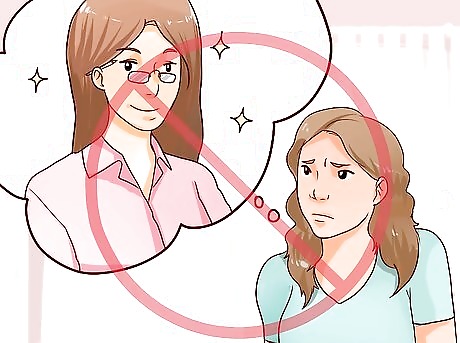
Stop comparing yourself to others. Try to understand that some have it better than you, but many have it much worse. When we make ourselves miserable by comparing ourselves with others, we are wasting time and energy that we could use in building our own inner resources. Compliment yourself every morning. Being happy makes you a more positive person, which helps you put those positive vibes out into the world. You have your own unique gifts and talents. Focus on sharing them with the world instead of focusing on the gifts of another.

Love yourself. Learn to love yourself in every way. Practice unconditional self-acceptance. The only way you can truly love others is to first have confidence and love yourself. What you do and what you believe must make you feel good as well as others. If you try to do things for others without taking care of yourself, you can end up resentful, angry, and negative. If you love yourself, then you will make a positive impact when you help others. Are you superficially acting like a good person? If you are self-loathing and angry on the inside, you may not be a good person despite all your outward actions.
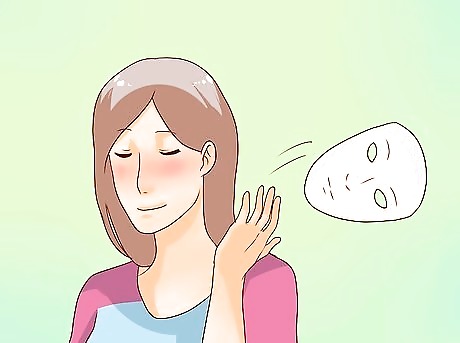
Be yourself. Remember to be yourself always and never someone who you're not. Don't try to be like somebody else; just be yourself and do good things as simply as you can. Being yourself helps you be a genuine person who can reflect positivity into the world. Staying true to yourself helps you find focus and understand your core values and what you find important. Be good for its own sake. Don't try to be a good person because your parents told you to, because you want recognition or respect, or for any kind of reward except your own satisfaction in doing what you believe is good. Never act superior to anyone else or brag about your "goodness" or "righteousness". Your dedication to a particular creed, ideology, or set of guidelines does not make you better than anyone else. Do what you believe makes you a good person on your own terms, and remember that it's an individual journey - everyone's path is unique. "Do good by stealth, and blush to find it fame." — Alexander Pope.
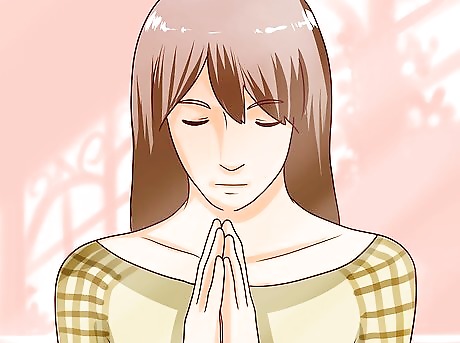
Pray and/or meditate. Praying to a higher power or meditating can help cultivate the qualities you seek to embody. Meditation and prayer can help you find inner peace and focus on your inner self. As you increase your self-awareness, you understand what you really want and find clarity in your life. As you gain inner peace, you feel more positive, which helps you become a better person. Find a private, safe space free from distractions. Sit in a comfortable position. Clear your mind from all thoughts and take a few deep, slow breaths. Observe the thoughts in your head. Don't feel or react, just observe. If your focus breaks, just count to ten. Meditate until you feel cleansed and rejuvenated.

Make small changes. Take a moment to reflect and recognize the things you need to change to be the best version of yourself. No one can change immediately. But even small changes can make an enormous and positive difference. Set small goals every month or two and focus on one or two key habits which you want to change. An example for Goal 1: I will listen to others without interrupting at all either verbally or in any other way. Think of how annoying it can be for you when the other person begins to move the lips as if they are about to intervene. Goal 2: I will do my best to think of what things would make another person happy. This could be sharing your food or drink with others when they are hungry or thirsty, letting someone else sit where you want to sit or something else.
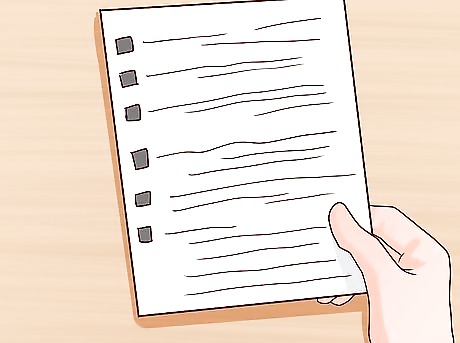
Review your goals every day. To start your mission to become a good person, make and read a list of your ideals every day. Make it a part of you. Follow the guidelines and add some of your own steps as well.
Having a Positive Attitude

Try to look at the bright side of things. Bring a positive attitude to every situation. Negativity only hurts yourself and others. If you are negative, it has an impact on the way you treat others. Our mentality can influence the achievements of our days. If something doesn't turn your way, try to change what you can, smile, stay positive, and move on. The Motto of the Christophers says: "It is better to light a single candle than it is to curse the darkness." Be that light. When you see controversy, try to be the one who changes the subject by suggesting a solution. Don't state what you would do, but ask everyone to get involved.

Do an act of charity for someone else. Try to do something nice for someone every day, even if it's something small. An act of kindness and generosity can have a great influence. Smile, hold the door open for someone, pay it forward at the drive through - just try to do something to make someone's day. Even reach out to people who have been cold or indifferent to you. Show someone who is rude to you the example of your kindness. Maybe people have always been rude to them. Be the person who shows them kindness instead.
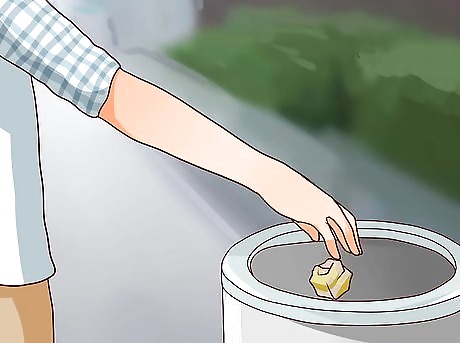
Make a point to make the world a better place every time you leave the place of your dwelling. Every time you interact with the world you have an opportunity to do something good and positive. It does not have to be something big, but can be something like picking up some trash that someone threw down in a local park or in front of your neighbor's home. Be conscientious and find a way to give back to the world. Easy ways to make a positive change include: Recycling Buying organic and locally grown food Being a responsible pet owner by cleaning up after your pets Donating old items to shelters or charitable organizations instead of a thrift store Putting items back in the store where you got them instead of leaving them Not taking the closest parking space so you leave it for someone who needs it more
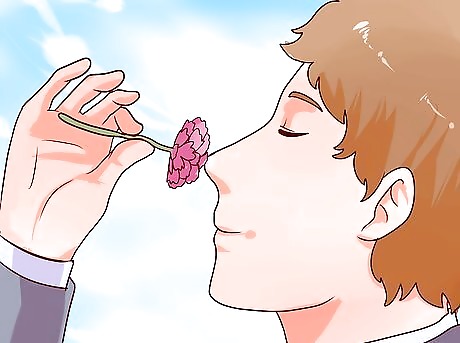
Slow down. Don't be in a hurry in life. Slow down and enjoy the simple things. Time is a medium that helps us organize our days. Sometimes you have to follow the timetable, like when you're on your way to work or getting your kids to school. But if you have no time commitments, learn to live in the moment. Be patient with people. Think the best about them instead of the worst. Don't think the person who bumped past you is a jerk; instead, understand that he or she may be late for work or to pick up their child. Don't be in a hurry to get to the store and get back. Enjoy the scenery as you pass by. While in the store, notice all the fine and colorful fruits and vegetables that are there for your nourishment, and realize that others are not as fortunate to enjoy the same benefits. Buy some extra nourishing food to give to the food bank to help feed others. Suggest to the manager there should be a food drop off sold at discount somewhere in the store for the poor. Only use the car horn in an emergency situation. Don't blow it at a little old man that can barely see over the wheel or someone driving extremely slow. Realize the driver may be taking his/her time so he/she doesn't injure him/herself or someone else. If they rush past you, understand that they may be in a hurry for something important. Even if they are not, why add to already negative feelings? Anger only begets anger.
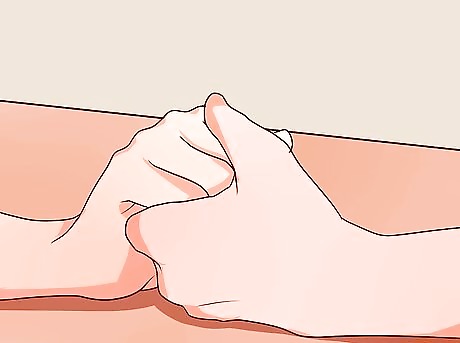
Practice forgiveness. Forgiving someone can be a difficult task. Realizing that people are human and make mistakes helps you let go of negativity so you can forgive the person and move on. When you forgive, you let go of resentment that can cause anger, bitterness, and turmoil. Forgiveness also makes you more compassionate towards others.
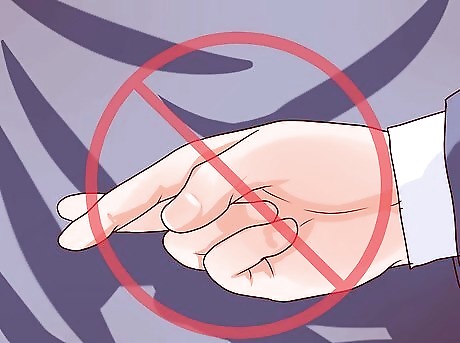
Be honest. Lying violates trust and destroys relationships. Instead of lying, be honest with those around you. Good people are honest and direct with what they're feeling and thinking. Talk to those people who are bothering you, instead of lying or getting others involved. Don't be passive-aggressive. Have integrity. Make your word mean something. If you say you are going to do something, then follow through on that promise. If circumstances arise that make it so you can't do it, be honest and direct and let the person know. Being honest doesn't mean being rude or cruel.

Make these small gestures a daily habit. Doing simple things, such as smiling at someone or holding the door open for a stranger, will help you become a better person. Soon enough, these small acts of kindness will become a habit that you don't even have to think about.
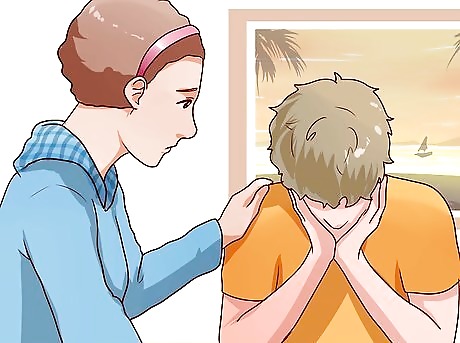
Be empathetic. Understand that being kind, understanding, and compassionate in how you treat others is largely the result of having a loving and caring attitude towards others. Try to put yourself in other's shoes and see things from their perspective. Ask yourself, "How would I feel if I were the other person?" You will likely act with the other person's feelings in mind. This will show in your words and actions. Be kind not so you look good to others, but more so others may benefit from your selfless acts. It doesn't work very well if you are merely trying to be diplomatic. Don't adopt a policy like, "Anything for a quiet life." Angelina Jolie Angelina Jolie, Actress & Humanitarian Live empathetically and help others to the best of your ability "We have a responsibility to be aware of others. We need to make justice the norm, not the exception."
Interacting With Others
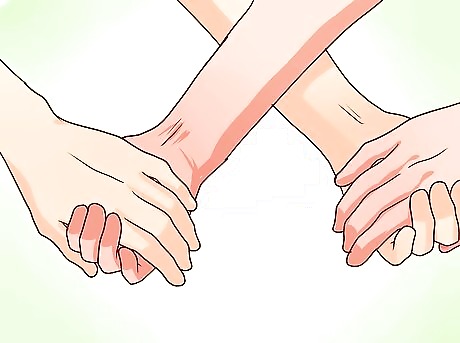
Accept everyone around you. Part of being a good person is not being judgmental. You accept everyone, no matter what race, age, sexual orientation, gender identity, or culture they are. Realize that everybody has feelings, every person is valid, and everyone should always be treated with respect. Be respectful of elderly people. Realize that you will be old someday and may need a helping hand. Next time you go to a mall, parking lot, or anywhere, look for an old person struggling with something, like carrying bags or loading groceries into their car. Ask, "May I help you with that?" You will be doing a great service for seniors. Sometimes you may get one who will reject your offer; simply say, "I understand, and I wish you a good day." Or when you are out and see an old person alone, say hello with an amiable smile and ask how they are doing. Just acknowledging someone can make their day. Be compassionate towards intellectually disabled people. They are people with feelings too. Give them a big smile and treat them like a person. If other people are smiling or laughing with your interaction with them, ignore them and keep your attention on the person who is your true friend. Don't be racist, homophobic, or intolerant of other religions. The world is a large place full of diversity. Learn from others and celebrate differences.
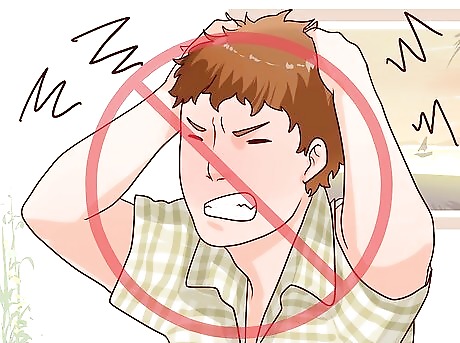
Control your anger. When you argue with someone, try to control your anger. Don't hide or be rude when you are in an argument with a friend. Talk to them and work it out. It is best not to fight fire with fire, perhaps suggesting that the both of you take some time to think it over. Say, "I want to resolve this with you because you are such a good friend. Let's take time and think this out." Don't blame others. Accept what is your fault, talk to others about what they have done to upset you. But blaming others fosters negativity and resentment. If you can't let go of your anger, try writing down your feelings, meditating, or managing your thoughts. Don't try to correct people when they're angry by saying something irrational. Just listen with compassion and remain quiet. Say to them, "I'm sorry you feel this way, is there anything I can do to help?"

Compliment people. Saying nice things to people is an easy way to spread positivity. Compliment a co-workers new haircut or a stranger's dog. Compliment friends who you might be jealous of. Giving credit where due is respectful, and you would want the same respect for an achievement you've accomplished.

Be a better listener. People rarely take the time to listen to people. Everyone wants to feel important and like they matter. Take the time to listen to people. Follow what the person is saying. Don't get distracted by what's going on around you or play on your cell phone. Be engaged with the person and the conversation. Ask some follow up questions on the topic; this helps them know that you're paying attention to them.

Celebrate other people's victories and good qualities. Be kind and generous to others, liking them for who they are. Celebrate others when good things happen and don't be jealous. Be supportive and encouraging. Jealousy is hard to overcome. Try to realize that you don't have to have the same things as everyone else. Try to stop feeling jealous of other people.
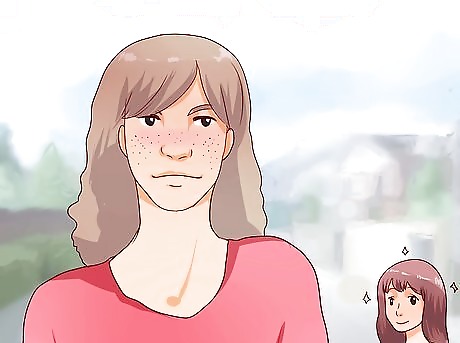
Be a role model. Sometimes, you can learn best by teaching. Make yourself available to help other people and foster a genuine desire to see them thrive. Believe in the power of your actions to influence others. Live your life in a way that inspires others. Share your life and philosophies with others. Find someone to be a role model to. Be cautious of the way you live so that you will always be acting in a way that will make someone proud. Give the young good moral values to live by and teach them the importance of morals. Sometimes you will feel as if your effort was in vain, but realize that you have planted the good seed in their minds, and it may take some time to respond to it. When other people see you doing good deeds, they will be reminded to take more positive action themselves. Nurturing someone else and striving to be an example can help you see your own acts more clearly. Start small. Join a Big Brother-Big Sister program, volunteer to coach a kid's sports team, teach, or be a role model for young family members.

Share. Share your possessions, your positivity, and your happiness. Don't be emotionally stingy. Be generous and encouraging. Share your knowledge. Share opportunities. Share your time. Share your food with others. Never take the biggest slice of pizza or piece of meat, or if you absolutely must do so, split it with others.

Respect everyone. Be fair to all people. Treat everyone with kindness, and do not be mean or rude to people, even if they don't agree with you. Do not bully, but instead, stand up for the bullied. Don't talk about others behind their backs. Be a genuine person. If you have a problem with someone, confront them in a respectful way. Don't spread bad things about them when they are not around. Don't unfairly judge people. You don't know the circumstances surrounding them. Give people the benefit of the doubt, and respect their choices. Treat others the way you'd like to be treated. Remember the golden rule. Put the energy out into the universe you'd like to receive. Respect extends to your surroundings, too. Don't throw trash on the floor, don't purposefully mess up things, and don't talk too loud or be obnoxious. Respect that other people share the same space as you.











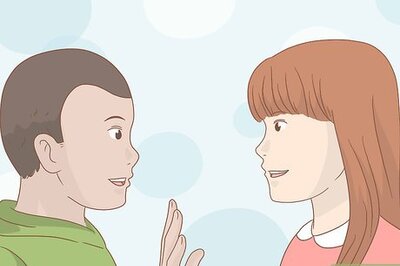





Comments
0 comment